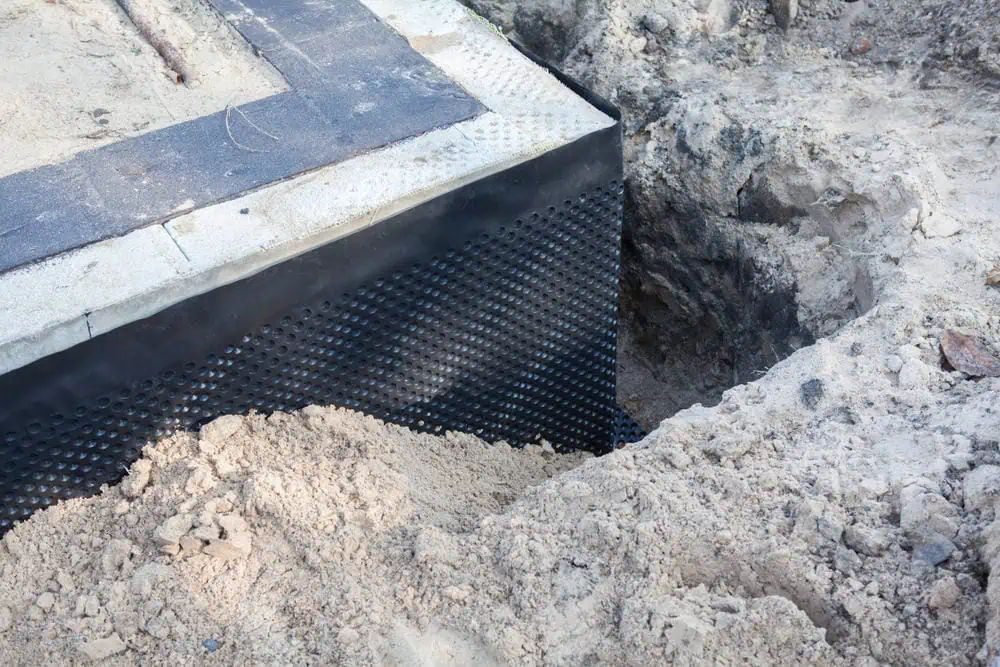Basement Waterproofing in Winchester, MA
Professional basement waterproofing services in Winchester, MA ensure your home stays dry and safe. Trust the experts at Academy Masonry for reliable solutions.
Call Us Today: 508-501-3272

Waterproofing your basement is crucial to maintaining the integrity of your home. In Winchester, MA, the experts at Academy Masonry provide top-notch services to keep your basement dry and safe.
Preventing water damage not only protects your belongings but also preserves the structural integrity of your home. Trust Academy Masonry for all your waterproofing needs in Middlesex County.
Our professionals have years of experience in basement waterproofing, ensuring reliable and effective solutions.
We are familiar with the specific waterproofing needs of homes in Winchester, MA, and Middlesex County.
At Academy Masonry, we prioritize customer satisfaction and stand behind our work with warranties and exceptional service.

At Academy Masonry, we offer a wide range of basement waterproofing solutions tailored to meet your specific needs. Our services include interior and exterior waterproofing, foundation repair, and sump pump installation. We use the latest technology and high-quality materials to ensure long-lasting protection for your basement. Our team is dedicated to providing reliable, efficient, and effective solutions to keep your home safe from water damage.
Interior waterproofing involves sealing walls and floors to prevent water from entering your basement. We use advanced sealants and vapor barriers to ensure your basement remains dry. Exterior waterproofing focuses on keeping water away from your foundation. This includes installing drainage systems and applying waterproof coatings to the exterior walls. By addressing both interior and exterior issues, we provide comprehensive protection for your home in Winchester, MA.
In addition to waterproofing, we offer foundation repair services to address any structural issues that may be contributing to water intrusion. Our experts assess your foundation and recommend the best solutions to ensure its stability and integrity. Sump pump installation is another crucial service we provide, helping to remove water that accumulates in your basement. Contact Academy Masonry today at 617-388-5207 to schedule a consultation and learn more about our extensive waterproofing services.

Choosing professional basement waterproofing services from Academy Masonry offers numerous benefits for homeowners in Winchester, MA. Our expertise and advanced techniques provide effective solutions that DIY methods can’t match. By hiring professionals, you ensure that your waterproofing is done correctly, providing peace of mind and long-term protection for your home. Our team is trained to identify and address the root causes of water issues, ensuring comprehensive solutions.
One of the primary benefits of professional waterproofing is the prevention of mold and mildew growth. Moisture in your basement can lead to these harmful fungi, which can cause health issues and damage your property. Our waterproofing solutions keep your basement dry, preventing the conditions that allow mold and mildew to thrive. This not only protects your home but also improves indoor air quality, making your living environment healthier.
Another significant benefit is the preservation of your home’s structural integrity. Water damage can weaken your foundation and cause severe structural problems over time. By investing in professional waterproofing services from Academy Masonry, you protect your home’s foundation and avoid costly repairs down the line. In Middlesex County, our tailored solutions address the specific challenges of the local climate, ensuring your basement remains dry and your home remains safe.
Winchester is a town in Middlesex County, Massachusetts, located 8.2 miles (13.2 km) north of downtown Boston as part of the Greater Boston metropolitan area. It is also one of the wealthiest municipalities in Massachusetts. The population was 22,970 at the 2020 United States Census.